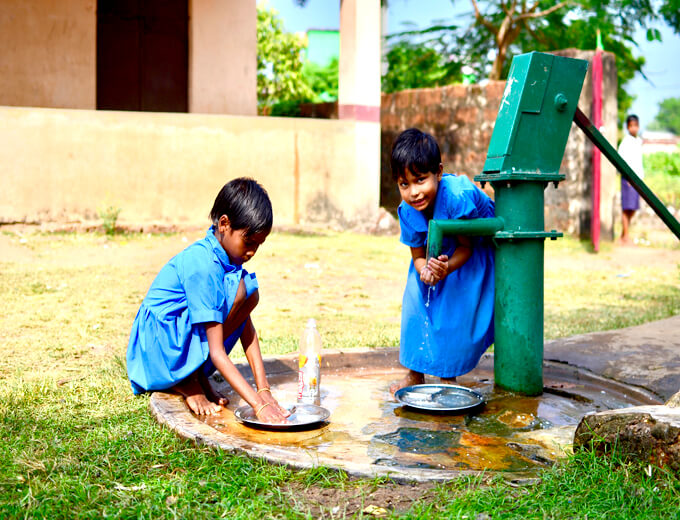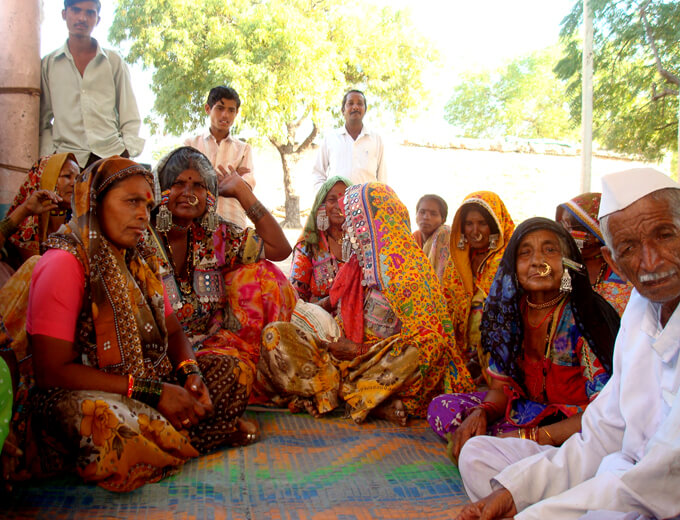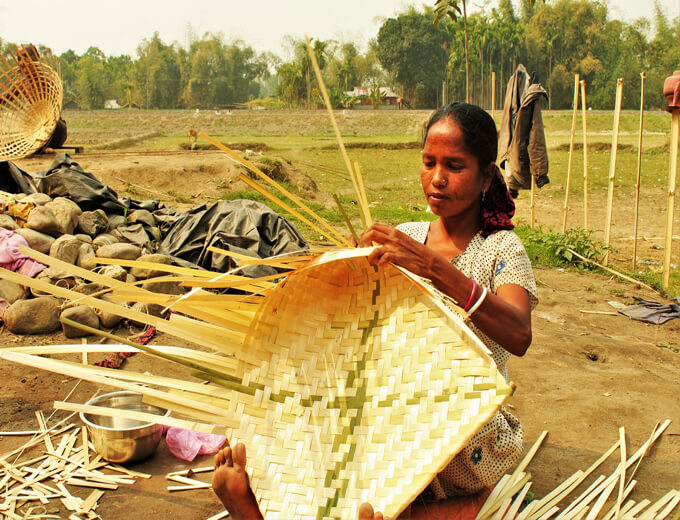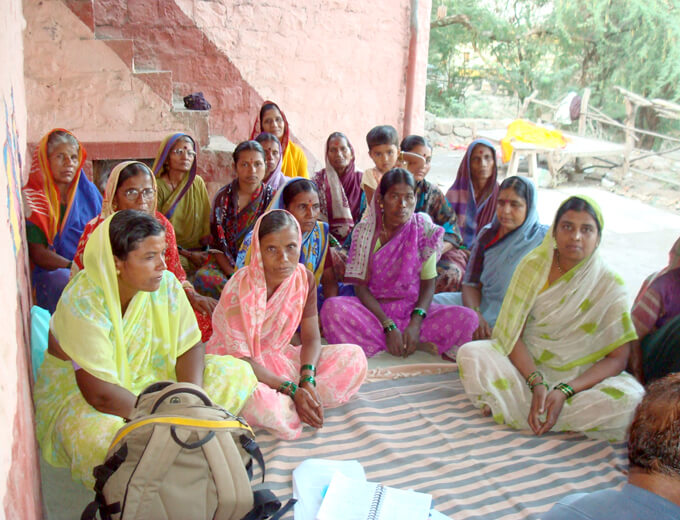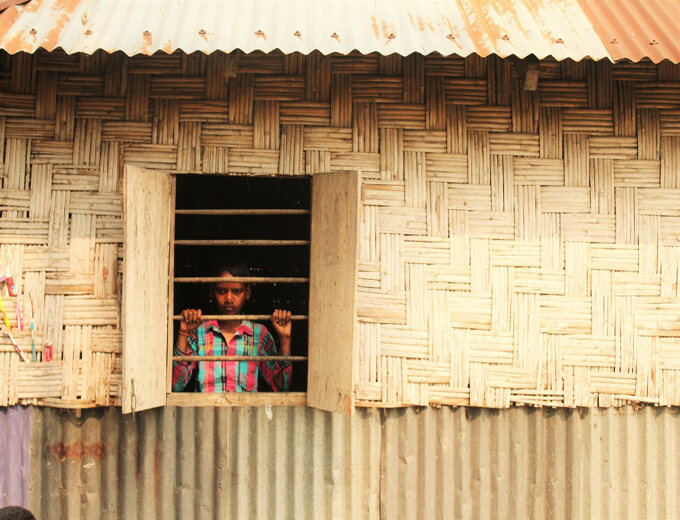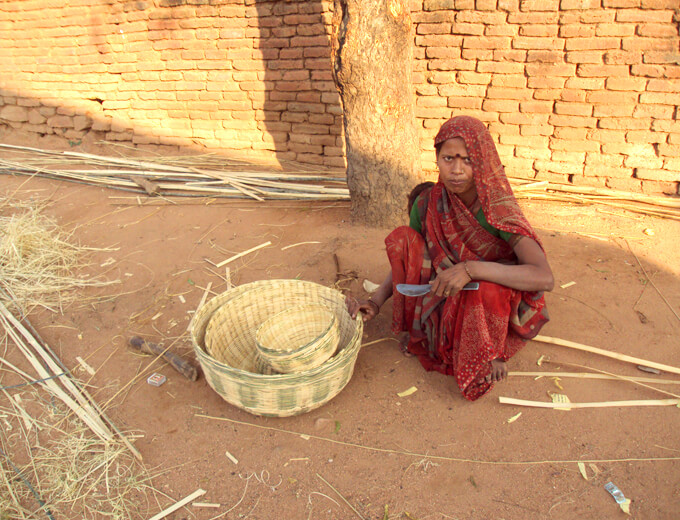The Water and Sanitation Programme (WSP) of the World Bank is engaged in advancing the Swachh Bharat Abhiyan (Gramin) in 5 states of the country, Odisha, West Bengal, Chhattisgarh, Madhya Pradesh and Rajasthan. Swachh Bharat Abhiyan (Gramin) has the objective of achieving Open Defecation Free (ODF) status by providing toilets to all households in the country by 2019, provide toilets in all the Anganwadis, and separate toilets for boys and girls in all the schools in the country and promote cleanliness in the all the villages through management of solid and liquid waste. WSP is considering support to the Swachh Bharat Abhiyan (Gramin) and in the course of making preparations for the project, it is taking up a series of assessments, including Environmental assessment, Fiduciary assessment and Technical Assessment (TA).
Sutra Consulting was engaged to carry out high quality Technical Assessment of the relevant elements of the Swachh Bharat Abhiyan in Odisha, West Bengal and at National level. Our team of experts had identified key weaknesses and possible improvements, proposed specific recommendations and defined the relevant key risks to the achievement of the Programme's stated results and associated mitigation measures. The specific recommendations were regarding the (a) actions to be undertaken with Bank support during preparation and implementation to address selected areas for improvement; (b) the definition of the scope and form of technical support during implementation; and (c) the key technical risks to the Programme not achieving its expected results as inputs to the integrated risk assessment for the operation.
One of the initial livelihood improve projects in India was the 130 million USD Chhattisgarh District Poverty Reduction Project. It aimed to improve opportunities for the poor and vulnerable, especially women and tribal, for social and economic development. Broadly, the project focussed on creating infrastructure and income opportunities for the rural poor; and empower vulnerable and disadvantaged people through Panchayati Raj Institutions (PRIs). The Project empowered active groups of disadvantaged people; and supported village governments in becoming more responsive and effective in assisting them.
Sutra Consulting conducted a policy research on tribal land for the Project specifically looking into modalities of land transfer from tribal communities in Chhattisgarh. The research generated a typology of various processes of tribal land alienation in Chhattisgarh, and explored their impacts on people's livelihoods, their interaction with laws for protection of tribal people, the effectiveness of these laws and possible means to improve access of scheduled tribes to land.
Our research helped the Project understand the typologies of tribal land alienation and the consequences of land alienation for tribal livelihoods and welfare. The study assisted the Project and policy making bodies assess the causes and modalities of tribal land alienation and initiate dialogues to initiate changes in legal and regulatory framework that would guarantee, restore and enforce tribal land rights.
National Rural Livelihood Project is a US$ 1171.00 million programme of the World Bank targeted to be implemented in 150 selected districts of 10 high-priority states of India. The intervention targets to improve rural livelihood interventions i.e. Andhra Pradesh, Madhya Pradesh, Tamil Nadu, Orissa, Bihar, Rajasthan, and Chhattisgarh and three new states: Jharkhand, Uttar Pradesh and Karnataka. The project aims to strengthen people's institutions to achieve social inclusion in all dimensions of the program through mobilization, institution-building, capacity building, financial, economic and social services, livelihoods, and so on.
Sutra Consulting provided comprehensive support to the programme where our team of experts were responsible to hold consultations with the primary, and most relevant secondary stakeholders of NRLP to inform the design and implementation of the NRLP as a socially inclusive and culturally appropriate programme. Our work in the programme led to inform a better understanding of institutions operating in remote and Left Wing Extremist affected areas and provide operational recommendations for the social management framework for the NRLP. This has led to a more inclusive programme design for NRLP focussing highly on social inclusion processes to ensure comprehensive participation in the programme.
The Himachal Pradesh Development Policy Loan (DPL) by World Bank to Promote Inclusive Green Growth and Sustainable Development proposes innovative reforms that support the GoHP to make a paradigm shift toward a socially and environmentally sustainable economic growth model. The programme supports reforms at both macro and micro level where contribution is towards ongoing transformation of the state's economy in building secondary, tertiary and infrastructure sectors while providing a new impetus to growth in a context of high environmental consciousness and cohesive social organization. At micro level the reforms would be shared with local populations through a range of community schemes, which would have the effect of redistributing the gains from macroeconomic reforms and mitigating the impact of negative spillovers.
Sutra Consulting provided research insights on the nature and extent of micro level impact as a result of the reforms on community across various social and economic dimensions and captured changes and effect experienced by the different groups, particularly the poor and vulnerable. Our experts were responsible for conducting consultations with communities who were affected by the Hydel power project and Mid Himalayan Watershed Projects. The research tools were designed by the experts and focus group discussions were carried out in different pockets of 4 districts of Himachal Pradesh. Our work in programme has led to derive recommendations separately for hydropower and watershed reform projects. The recommendations where in the line of improving local infrastructure with positive impact on community, on groups to be targeted for receiving benefits out of local employment and demand for local services, differential impact on household welfare, influence on the dynamics of social change, impact on productivity and ecology and longer term impact on household welfare.
Establishing Vulnerable Peoples Access to Social Safety Net Programmes (EVPRA) Project in Bangladesh is implemented by World Vision Bangladesh, Pollisree and PUMDO (Peoples Union of the Marginalized Development Organization). The programme aimed to empower local, indigenous civil society organisations (CSOs), local authorities (LAs) and communities to promote access to Social Safety Net programmes (SSNPs) for the most vulnerable communities by enhancing transparency and accountability in the provision of Social Safety Net programmes. The project intended at utilising World Vision's local level social accountability approach, citizen voice and action, by empowering Civil Society Organisations, their membership and communities to increase their influence on access to Social Safety Net programmes and related policies and strengthen the capacity of duty bearers to respond positively to citizen participation in service delivery decision-making and monitoring processes.
Sutra Consulting undertook a baseline study to establish the socio-economic, political and governance context in which the Establishing Vulnerable Peoples Access to Social Safety Net Programmes (EVPRA) will operate. The team of experts developed the study design and sampling; designed and pre-tested the tools; trained the field team; and assessment of the data collected and documentation. Our work in the programme led to a better understanding of the wide-ranging possible impact of the programme, particularly in improving access to social safety net programmes.
The Madhya Pradesh Higher Education Quality Improvement Project (MPHEQIP) of World Bank aims at improving student outcomes by bringing systemic changes with respect to equitable access, quality, innovations, and financing and governance reforms in higher education. The programme aims at addressing a wide range of systemic issues by providing grant support to higher education institution, undertake state level initiative and programme management and capacity building.
Sutra Consulting provided insights through the study in mapping the perception and opinions of employers in Madhya Pradesh on the required skill set in different functional roles; assessing the characteristics of employment offered for men and women in different manufacturing and service sector in 3 hub cities of such industries in Madhya Pradesh; and identifying the key constraints related to jobs for graduates in urban manufacturing units and service sector enterprise and other professional services. The team of experts provided inputs on sampling methodology, reviewed the data collection tool, recruited and trained suitable team members for the study, conducted survey and present a report on the findings. Our work while doing the quantitative enterprise survey across three cities of Madhya Pradesh, i.e., Gwalior, Indore and Bhopal led to draw learnings towards skills needed for the targeted group; hiring requirements and criteria; hiring process; terms of employment offered; preferences for hiring (disaggregated by men and women; graduates and non-graduates; designation held, etc.). Learning were used to reflect upon key constraints related to jobs for graduates in urban manufacturing units (large, medium, small and micro enterprises), and service sectors enterprises (such as education, health, Information Technology and communication, hotels and restaurants, professional services, malls and retail among others).

